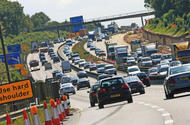Automotive technology development is moving at an unprecedented speed, which is more than can be said for UK motorway traffic. Let’s fix that
The UK’s creaking system needs a saviour. So what would we do if handed power as the government transport minister for a day?
It’s hardly an enviable position, but Britain’s transport minister has the power to improve commutes, reduce the rate of traffic fatalities, streamline public transport and reduce emissions.
With our road network pockmarked by potholes, a nationwide upgrade to smart motorways causing lengthy tailbacks and a confused political position preventing a smooth shift to electrification, we ask: what would we do with the authority?
Here’s what the Autocar writers would do if they were put in the hot seat for the day:
Matt Prior
Approve a massive transport infrastructure project, making the UK the easiest country in the world to travel around. Approve every bypass currently under consideration.
Commission a new national airport, in the middle of Oxfordshire – an hour from London, an hour from Birmingham, between the M1 and M40, with a new motorway link between the two, which then heads due west into Wales and due east into East Anglia. Modify HS2 to fit it. Make a straight motorway link to the M40 from the M6, to the west of Birmingham, and then from M40 to the south coast.
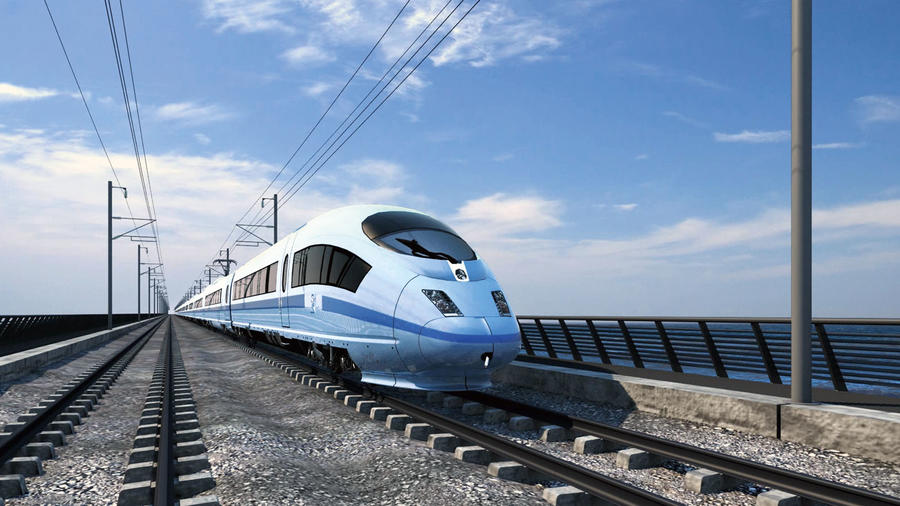
Install dual carriageway into Cornwall. Make a new motorway from north Wales for Liverpool to Manchester to Leeds to near York and make the A1 a proper motorway all the way to Scotland.
And crucially add a rail line alongside every one of these new or upgraded roads, with regular big, free car parks at stations near towns. And streamline train prices.
Andrew Frankel
If I were transport minister for the day, I would:
Use ‘smart’ motorways to raise speed limits as well as lower them. Create cycle lanes with solid white lines over which neither cars nor bicycles can cross. Lower speed limits to 20mph in all urban residential streets and outside all schools during term time.
Reintroduce mandatory MOTs for classic cars, but increase the scope of tax exemption for classic cars. Ban old diesels; there is no justification for keeping them on the road. Support modern diesels, offering tax breaks for RDE2-compliant cars and recognising the vital role they play in limiting tailpipe CO2 emissions.
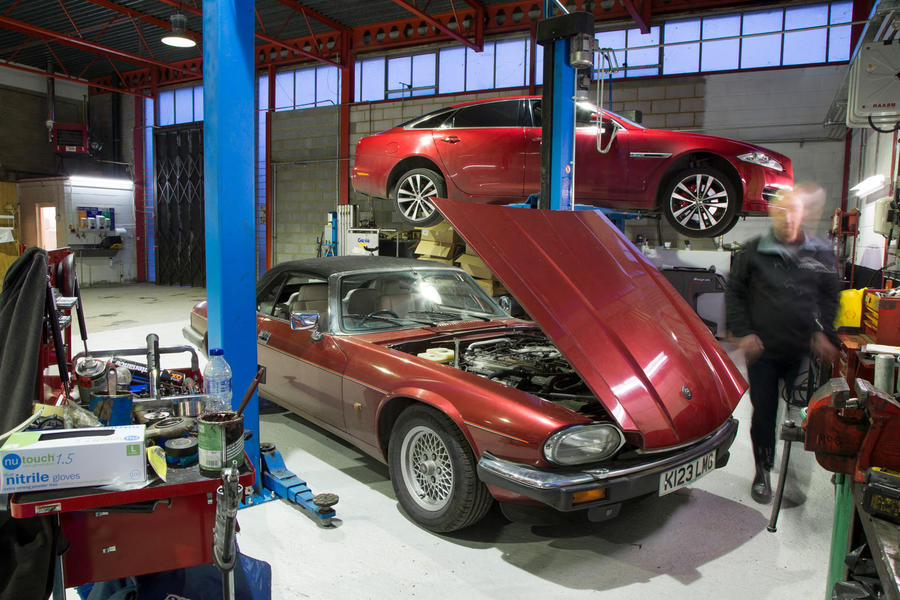
Invest in sustainable hydrogen infrastructure. Long term, fuel cells are the future. Use smart motorways to make lane discipline legally enforceable. Make night driving and skid control part of the driving test.
Once the above is achieved, take the rest of the day off.
James Attwood
There’s plenty I’d love to do if I were made transport minister for a day, although my grand plans (actually fixing all those potholes, for example) would likely drain the department’s annual budget in 24 hours, making life tough for the poor sod who has to spend the following 364 days picking up the pieces.
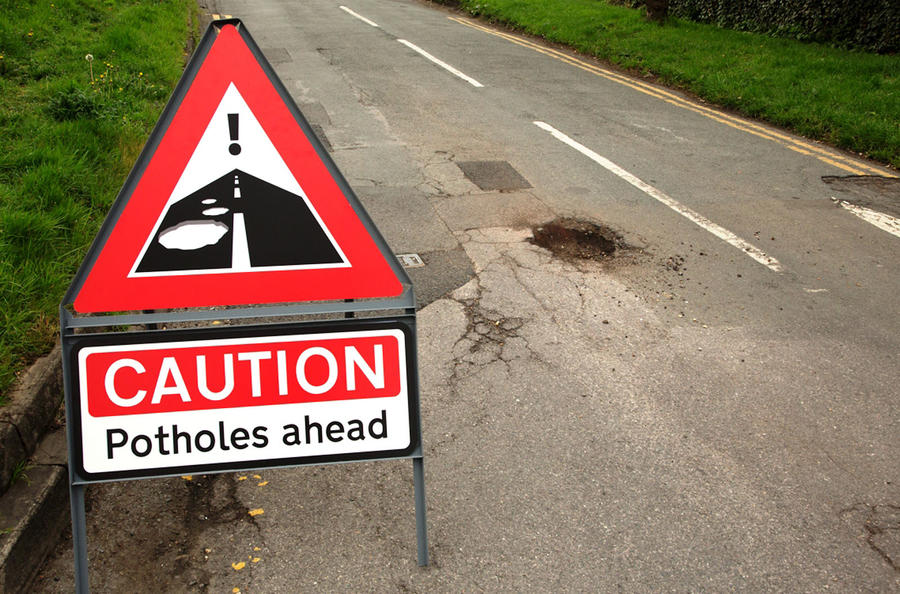
So I’ll stick to introducing a simple, relatively cheap-to-implement policy: greater enforcement of driving standards. Let’s get the police to spend less time monitoring speeding, and more time actually making the roads safe by clamping down on dangerous, inconsiderate and selfish road users.
Drivers jumping lights, cutting in at junctions, changing lanes erratically, blocking junctions and so on make Britain’s roads seem even more crowded than they really are, in turn making driving more stressful and less enjoyable.
That should make a difference. Now, while nobody’s looking I’ll quickly sign off those pothole repairs and a big investment in electric car charging points…
Jim Holder
I’d pick up the phone and call Matthew Avery at Thatcham Research, and download his every thought on how to integrate assisted driving and automated driving cars onto our roads in a safe and sensible manner that balances the desire for tech leadership against one of safety and common sense.
Avery has long been a leading voice on anything related to automotive and safety, and has the rare distinction of being both a technical expert and able to communicate in a way that even the least technically knowledgeable can understand. Encouragingly, he’s also strident in his belief that there is no grey area between the two sides of assistance (when drivers still need to be alert) and autonomy (when they do not) and he has a view of how to make that transition work (as well as a refusal to countenance any muddling of the two).
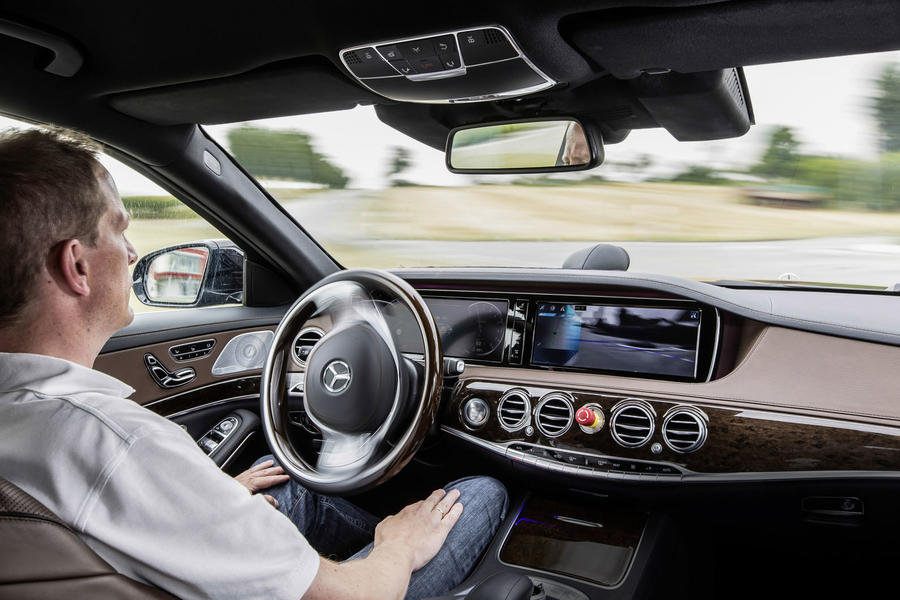
The path to autonomy will dominate the motoring agenda once the electrification debate has settled and is fraught with complication – but here is the man who can make sense of it for everyone.
Rachel Burgess
First order of business would be a review into the effectiveness of smart motorways. Too often I see tailbacks caused by over-cautious drivers slamming on the brakes as soon as a 40mph sign flashes up on the gantries. And if they’re supposed to be stopping jams on the motorway, I’m not sure they’re working…
Second, I’d take a close look into taxation and grants. No more punishments for clean Euro 6 diesels, and more generous incentives for plug-in hybrids (especially in light of the recent Ultra Low Emission Vehicle grant debacle).
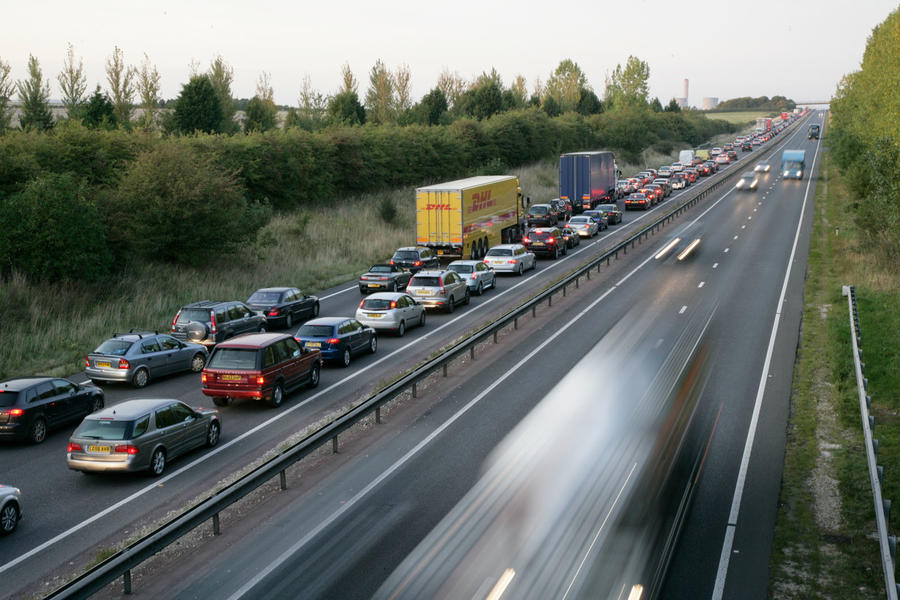
If we’re looking to raise money, why not introduce higher rates for cars over £100,000, £150,000, £200,000 and so on? I think reinstating MOT tests for pre-1971 classic cars would be a sensible choice, too.
Last but not least, for those times when you’re stuck in stationary traffic for hours, I’d introduce retractable vending machines between lanes. Joking. Sort of.
Mark Tisshaw
Transport minister? That’s a job for a career politician on their way up the food chain with a long-term eye on Number 10. I mean, none of them really care about motorists, do they? But there’s a chance to win populist appeal here, so here’s what I’d do.
What’s the biggest problem with our roads day-to-day? Volume of rush-hour traffic. So let’s get radical: convince the treasury and Number 10 to introduce a four-day working week, phased in different postcodes of the same area to have different days off to help alleviate traffic.
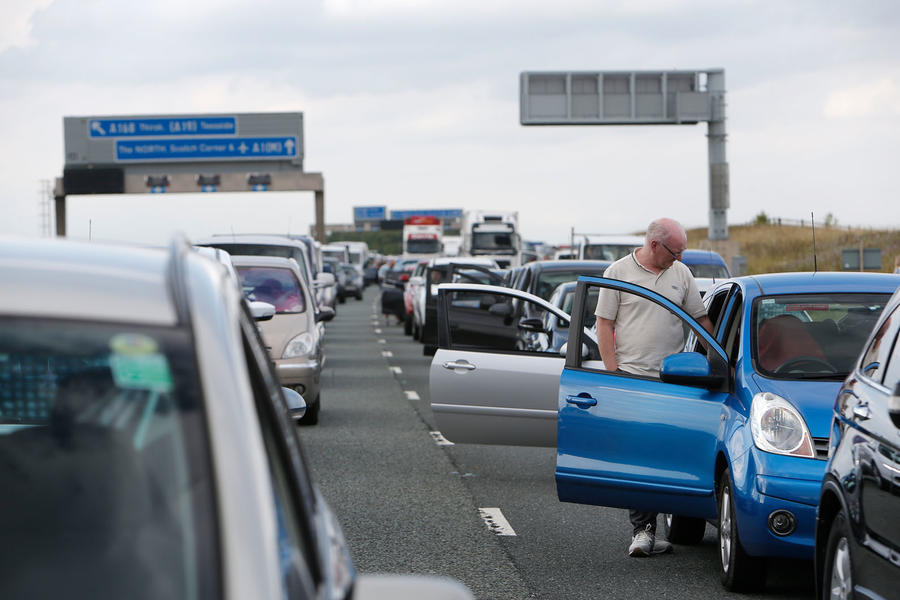
Let’s take the Reading postcode area of Berkshire where I live. There are 35 different RG postcodes, so seven random ones have Monday off, same for Tuesday, and repeat to the end of the week. The result? Reduced traffic levels, even with people going to other areas, as the ‘postcode lottery’ is played out across the UK. Or total confusion and years of delays to the point where it gets scrapped.
The perfect political idea, then.
Lawrence Allan
If I were transport minister for the day, I would stop the roll-out of ‘smart’ motorways until a thorough and independent investigation into safety concerns can be completed. In particular, the system that decides when and where to reduce speed limits needs a radical rethink, as many are so fed up with seeing the limits fluctuate randomly for mile after mile they simply ignore them, creating massive speed variation between lanes.

The huge amount of money saved from halting smart motorway implementation could, in the short term at least, be used to increase the number of traffic police on our roads. Highways Agency staff should be given the ability to quickly report poor driving, with a focus on policing driving standards rather than just collecting speeding fines. Attentive, aware drivers doing 80mph clearly pose less of a risk on motorways than the vast amount of drivers who think texting at the wheel is acceptable.
Richard Bremner
Introduce a smart road-tolling system to replace vehicle excise duty. Every vehicle would be fitted, by law, with a smart GPS tracker.
If you think that’s invasive, well, your smartphone already knows where you are. A standard cost-per-mile rate would be levied across every UK road, and adjusted in realtime according to the vehicle’s homologated weight (taxing weight taxes road wear), emissions (CO2, NOx, particulates) and time of use (from rush hour to dead-of-night), plus the road’s maintenance needs.
Most of the tax would be used for general government spending, as now, but a fixed proportion (20%?) would be allocated to road maintenance and build. Roads needing work would cost slightly more to use, but not so much as to encourage rat-running, to pay for repairs. Foreign haulage operators would also pay.
The result would be the fairer allocation of road resources, as determined by the vehicle’s realtime congestion, environmental and maintenance impact. The tax on weight would encourage reduction, with obvious benefits. CO2 output would additionally continue to be taxed via fuel/electricity duty.
Hilton Holloway
I would introduce significant incentives – guaranteed not to be withdrawn for at least seven years – for the adoption of LPG and natural gas as automotive fuels. It’s a much quicker way of shifting from diesel, especially for commercial operators.
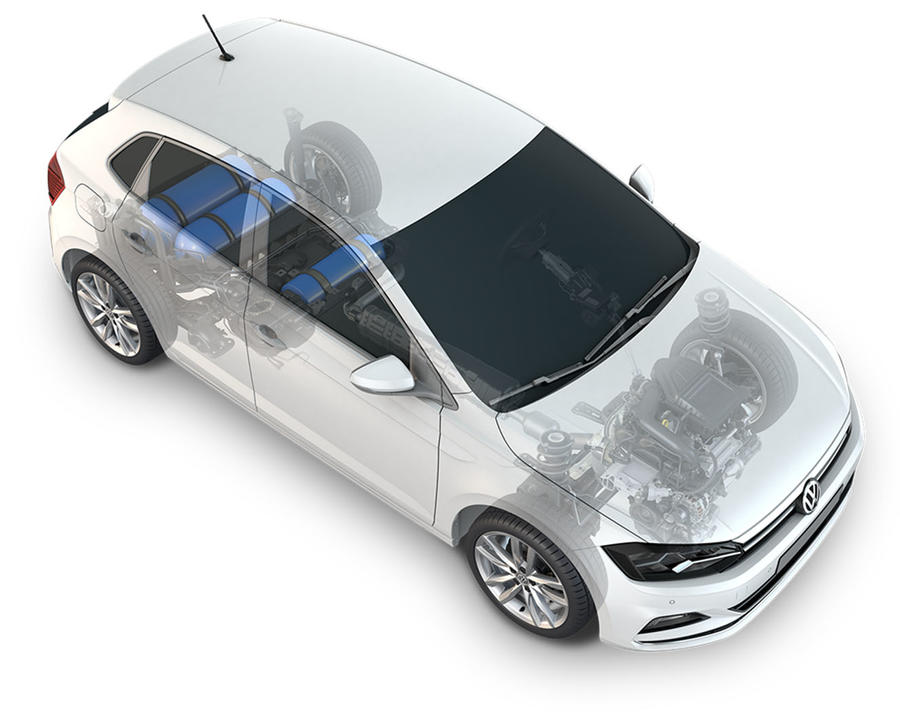
While people struggle with the cost and difficultly of charging battery cars, we are literally standing on a country-wide gas infrastructure. The Volkswagen Group is already producing gas-powered vehicles across most of its brands that are very low on both pollution and CO2.
Road fuel receipts would have the three cash amounts printed on them. Government fuel tax, the producer charges and retailer profit. Elsewhere, there would be three numbers on rail tickets: the ticket cost, the taxpayer subsidy for the fare and the profit per-ticket being made by private operators. It might remind people that motorists pay more than their ‘fare’ share.
Steve Cropley
The likelihood of my becoming a politician is thankfully slight, but were I to become transport minister, I’d have the Highways Agency form an elite research group tasked with searching the roads network for unwanted anomalies that impede traffic, increasing costs and pollution.

The group – called Free Roads Observation Group (FROG) – would comprise members chosen for driving knowledge, experience and common sense. The task would be to spot places where signage is misleading or obscured, speed limits are inappropriate, traffic-light regimes cause needless hold-ups and where daft local authority decisions have created unintended difficulties. Private citizens would be encouraged to bring their own experience to FROG’s attention via a website and phone number.
FROG’s observations would be listened to and their recommendations discussed at implementation level. If their findings were not acted on, as transport minister I would want to know the reason why.
Read more
Do we really want more smart motorways?
Euro 6 diesels could be banned in three European cities
Potholes: how much they cost the UK and how they are fixed
Source: Autocar
